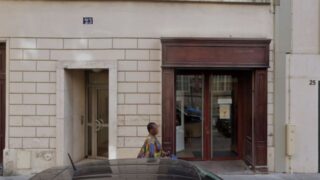Argentinian Pablo Salum includes among “cultists” even the Catholic Discalced Carmelite nuns. He claims that in 2013 he was offered collaboration by the French Embassy.
by Massimo Introvigne


The world of activists denouncing religious minorities they do not like as “cults” is full of bigots and bizarre characters, but Argentina’s Pablo Salum ranks among the most extreme. He has called Falun Gong, with words that looked like he had borrowed them from the Chinese Communist Party propaganda, “one of the most dangerous Chinese coercive organizations.” The Jehovah’s Witnesses were labeled a “coercive organization terrorist cult”; the Wicca a “cult and coercive organization”; the Latter-day Saints (popularly known as the Mormons) another “coercive organization cult,” whose leaders also “hide pedophiles.” Salum’s catalogue of “cults” has no ends, and includes Freemasonry, the Seventh-day Adventists, and even the Catholic Discalced Carmelite nuns.
He took advantage of the recent incident involving the Dalai Lama and a young boy to call His Holiness “this criminal who wants to be called Dalai Lama,” the Tibetan Buddhism he leads “a cult involved in human trafficking and pedophilia,” and Buddhism in general as a religion hiding “obscure coercive doctrines” typical of “cults.”


Pablo Salum started his campaign against the “cults” and for introducing into Argentina an anti-cult law decades ago, and has always used the same language and arguments. One of the most paradoxical features of his story is that, to this very day, he claims he was supported and encouraged by French diplomacy when in 2013 he was trying to extend his campaign nationwide.
When in 2023 he restyled his website, Salum still included a story from May 2013 about his visit with other members of his organization LibreMentes (a word play between words meaning “freely” and “free minds”) to the French Embassy in Buenos Aires.
“On May 2 of this year [2013], Salum reported, our NGO LibreMentes was received at the French embassy by its secretary Philippe Richou, who was presented with the bases of our bill [a proposed Argentinian anti-cult law], very similar to the one achieved in France in 2001, the About Picard law. A very positive talk in which experiences were exchanged on the subject… The French embassy offered its full collaboration in receiving and advising any Argentine legislator who is interested in the bill, in addition to offering experts from France for future congresses on the subject.”
Salum also posted pictures of himself and his co-workers inside the French Embassy holding signs promoting the anti-cult law.
The reference to Philippe Richou is correct, since we learn from his LinkedIn profile that he was from January 2010 to August 2013 Political Counsellor at the French Embassy in Buenos Aires.
France has been often criticized for indirectly helping anti-cult repression abroad, including in China and Russia, by supporting the anti-cult umbrella organization FECRIS, which in turn has demonstrable connections with both the Russian and the Chinese bloody repression of religious minorities.
Here, however, there is something more. We learn that in 2013 a French Embassy offered collaboration and proposed to send “experts from France for future congresses” to somebody who does not limit himself to attack as “cults” the usual suspects, but offends as “coercive organizations cults” Buddhists, Freemasons, Latter-day Saints, Seventh-day Adventists, Catholic Carmelite nuns, all groups well-represented in French society, history, and culture at many levels.
There are two possibilities about this story. The first, suggested to me by Argentinian friends, is that Salum invented it. After all, it is perhaps not that difficult to enter an embassy and take some pictures. It would be just another of Salum’s tall tales. The second possibility is that Salum really received an offer of collaboration on behalf of the French diplomacy. This would be more alarming, as it would show that France is ready to cooperate with even the most extreme characters under the flag of the fight against “cults” or “cultic deviances,” and that the prevalence of anti-cultism in French politics obnubilates even the usually cautious minds of diplomats.
The French Foreign Ministry may want to look into the records of his Buenos Aires Embassy for 2013, and clarify what happened exactly. We are sure that Buddhist, Adventists, and other French taxpayers from the minorities slandered by Salum will read this clarification with interest.









